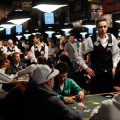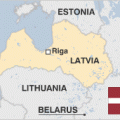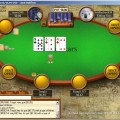
Chinese Poker Ban Doesn’t Worry PokerStars
The recent Chinese poker ban might not hit some operators as hard as others according to comments from two industry insiders.

It’s business as usual for The Stars Group in China despite the government’s move against poker apps. (Image: uxmagicians.com)
A week after news broke that China would be implementing a ban on all poker app from June 1, 2018, executives at The Stars Group remain optimistic about the Chinese market.
“The ban does not materially affect our existing businesses or our live events,” a representative for the company told Macau News Agency (MNA) on May 2.
Opinions Split on Future Implications
The assertion that the impending legal changes won’t affect the live tournament scene isn’t one that’s shared by everyone. In a statement to MNA, Christopher Chee of the Macau Billionaire Poker (MBP) Event Company Limited called the legislation “China’s Black Friday.”
Directing the blame for the disdain towards poker apps at a select number of operators, Chee believes the new rules are designed to stamp out all forms of real money poker.
“The recent ban on all play money apps of Texas Hold’em really concerns the government being unable to control the real money operations many of these play money apps facilitate. It is my belief greed and a few bad apples have set the entire poker industry back to its starting point in China,” Chee explained to MNA on May 2.
When the informal directive to ban online poker apps was issued on April 19, shares in Boyaa Interactive and Our Game dropped. Despite signing multi-year deals with the World Series of Poker in 2017, the companies, along with Tencent, have been forced to take down their apps.
Uncertainty Reigns Supreme in Unregulated Markets
While the online market is reeling from the intended ban, those with interests in the live arena may see an uptick in business. MBP’s Chee believes the ban on apps could force players to seek out “proper channels” to play poker, specifically his organization’s live events in Macau.
As for The Stars Group, issues in China will be seen as par for the course. In 2015, a PokerStars tournament in Nanjing was shut down by the Chinese National Police.
Despite receiving assurances for local authorities that the festival could take place at the Wutaishan Sports Center, the main event of the APPT Nanjing Millions stopped midway through play.
Given its size and potential value, China has long been seen as the next breakthrough market for poker. However, with gambling illegal on the mainland and each region have its own definitions of whether poker is a form of gambling or not, growth has been difficult.
The ban on poker apps has certainly come as a blow to those active in China, but the latest opinions suggest that it may just be one of the occupational hazard associated with unregulated markets.















0 Comments